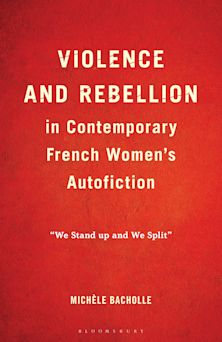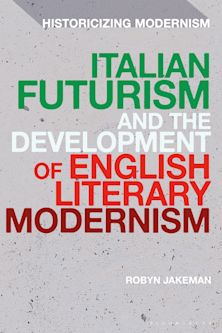- Home
- ACADEMIC
- Literary Studies
- Western European Literature
- French Civilization and Its Discontents
French Civilization and Its Discontents
Nationalism, Colonialism, Race
Tyler Stovall (Anthology Editor) , Georges Van Den Abbeele (Anthology Editor) , Janet Bergstrom (Contributor) , Hafid Gafaiti (Contributor) , Edouard Glissant (Contributor) , Donna Hunter (Contributor) , Jean Jonassaint (Contributor) , Valerie Kaussen (Contributor) , Ethan Kleinberg (Contributor) , Driss Maghraoui (Contributor) , Patricia A. Morton (Contributor) , Tyler Stovall (Contributor) , Richard Terdiman (Contributor) , Lyn Thompson (Contributor) , Georges Van Den Abbeele (Contributor) , Nancy Wood (Contributor) , Winifred Woodhull (Contributor) , Ali Yedes (Contributor)
French Civilization and Its Discontents
Nationalism, Colonialism, Race
Tyler Stovall (Anthology Editor) , Georges Van Den Abbeele (Anthology Editor) , Janet Bergstrom (Contributor) , Hafid Gafaiti (Contributor) , Edouard Glissant (Contributor) , Donna Hunter (Contributor) , Jean Jonassaint (Contributor) , Valerie Kaussen (Contributor) , Ethan Kleinberg (Contributor) , Driss Maghraoui (Contributor) , Patricia A. Morton (Contributor) , Tyler Stovall (Contributor) , Richard Terdiman (Contributor) , Lyn Thompson (Contributor) , Georges Van Den Abbeele (Contributor) , Nancy Wood (Contributor) , Winifred Woodhull (Contributor) , Ali Yedes (Contributor)
You must sign in to add this item to your wishlist. Please sign in or create an account
Description
What happens when the study of French is no longer coterminous with the study of France? French Civilization and Its Discontents explores the ways in which considerations of difference, especially colonialism, postcolonialism, and race, have shaped French culture and French studies in the modern era. Rejecting traditional assimilationist notions of French national identity, contributors to this groundbreaking volume demonstrate how literature, history, and other aspects of what is considered French civilization have been shaped by global processes of creolization and differentiation. This book ably demonstrates the necessity of studying France and the Francophone world together, and of recognizing not only the presence of France in the Francophone world but also the central place occupied by the Francophone world in world literature and history.
Table of Contents
Chapter 2 The Marginality of Michel de Certeau
Chapter 3 Disorienting Le Corbusier: Charles Edouard Jeanneret's 1911 Voyage d'Orient
Chapter 4 France in the Wilderness
Chapter 5 Opacity in the Films of Claire Denis
Part 6 Black Diaspora and Créolisation
Chapter 7 The French Language in the Face of Creolization
Chapter 8 Kojève and Fanon: the Desire for Recognition and the Fact of Blackness
Chapter 9 Historically Particular Uses of a Universal Subject
Chapter 10 For a Caribbean Intertext: On Some Readings of Maryse Condé's Crossing the Mangrove
Chapter 11 "Hereditary Antagonism": Race and Nation in Maurice Casseus's Viejo
Part 12 Orientalism and the Maghrebian Presence in Post-Colonial France
Chapter 13 Nationalism, Colonialism, and Ethnic Discourse in the Construction of French Identity
Chapter 14 French Identity, Islam, and North Africans: Colonial Legacies, Post-Colonial Realities
Chapter 15 Social Dynamics in Colonial Algeria: The Question of Pieds-Noirs Identity
Chapter 16 Remembering the Jews of Algeria
Part 17 Miscegenation, Degeneration, and other Metropolitan Anxieties
Chapter 18 Decadence/Degeneration/Créolité:Rachilde's La Jongleuse
Chapter 18 Love, Labor, and Race: Colonial Men and White Women in France during the Great War
Chapter 20 The Children of Belgium
Product details
| Published | 22 Oct 2003 |
|---|---|
| Format | Ebook (PDF) |
| Edition | 1st |
| Extent | 1 |
| ISBN | 9781978799769 |
| Imprint | Lexington Books |
| Series | After the Empire: The Francophone World and Postcolonial France |
| Publisher | Bloomsbury Publishing |
About the contributors
Reviews
-
This is a superb collection. The elegant introduction presents the current situation of French and Francophone studies with icy clarity and should become required reading. The contributors add original interdisciplinary perspectives on intellectual and cultural history, race and gender, cinema and architecture, the Caribbean, the Maghreb, and Belgium. No one working in French studies can afford to ignore this book.
Françoise Lionnet, UCLA
-
French Civilization and Its Discontents is a rich mosaic of French and Francophone studies in the world at large. The editors take a strong critical view both of French universalism and of the civilizing mission that had marked its colonial ambitions. They show admirably how the nation is being renewed where it folds practices that had been outside of itself into the textures of contemporary life. The book is rich, variegated, and compelling. It will further galvanize our commitment to French and Francophone studies.
Tom Conley, Harvard University
-
With great authority, French Civilization and Its Discontents shows why, at this moment, it is scholars outside France who are best situated to perceive the compelling political and cultural transversals that allow French history and that of the Francophone world to be thought together.
Kristin Ross, Department of Comparative Literature, New York University
-
This is simply the most comprehensive and compelling collection on these intersecting themes. It is bound to reconfigure French cultural studies and post/colonial histories.
David Theo Goldberg, Director, Humanities Research Institute, University of California
-
History doesn't stand still and French Civilization and Its Discontents provides a brilliant examination of how the state of France along with its culture, language, literature has exercised a powerful and complex influence both within and outside of its borders. This book challenges traditional notions about French history, its intellectual legacy, and its importance for a wide variety of subjects and disciplines. Stovall and Van Den Abbeele both deepen and expand the importance of interdisciplinary studies and in doing so open up new ground for understanding the landscape of global politics, and its intersection with the politics of difference and the legacy of the nation. This book should be read by both students of French civilization and everybody else interested in culture, identity, and global politics.
Henry A. Giroux, McMaster University Chair for Scholarship in the Public Interest
-
At last a book that challenges the myth of French universalism. French Civilization and its Discontents exposes the workings of an assimilationist culture that has long refused to recognize the ways in which difference has in fact shaped its national identity. These essays make a strong case for accounting the ways in which colonialism, immigration, and race have been repressed in the construction of the myth of a unified, homogeneous "France." They offer an analytic model which deconstructs the oppositions between France and its 'others,' center and periphery, metropole and colonial outpost-oppositions which have sustained inequality and discrimination for too long.
Joan W. Scott, Institute for Advanced Study



































